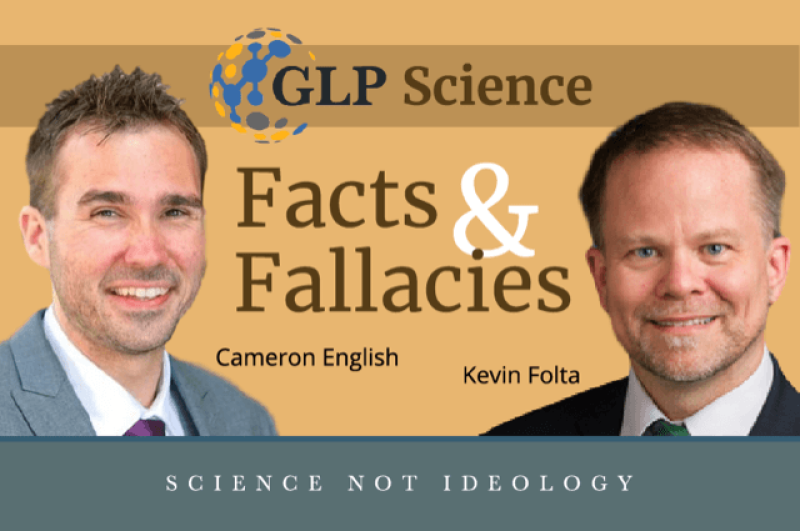Podcast:
Podcast: Play in new window | Download
Subscribe: RSS
Video:
Join guest host Dr. Liza Dunn and GLP contributor Cameron English on episode 224 of Science Facts and Fallacies as they break down these latest news stories:
The International Agency for Research on Cancer (IARC) has developed a reputation for declaring that chemicals pose a cancer hazard even when there’s no evidence they harm human health. Some experts have speculated based on preliminary comments from IARC that the agency’s upcoming monograph on the sweetener aspartame will conform to this pattern. Some 90 countries have authorized the use of aspartame in foods and beverages, and the FDA has conducted five reviews of the relevant research, all concluding that the sweetener poses no significant risk. “Scientific evidence has continued to support the FDA’s conclusion that aspartame is safe for the general population when made under good manufacturing practices and used under the approved conditions of use,” the regulator’s website notes. The stage is set for another international showdown over a benign chemical. Will the science win out?
According to a recent study that monitored the drinking habits and heart health of thousands of people, moderate alcohol consumption (1-14 drinks per week) may lead to changes in the brain that reduce inflammation and ultimately lower a person’s cardiovascular disease risk. Epidemiological studies can’t demonstrate causation, so it remains to be seen if the results will hold up as additional research is performed in the coming years. Nonetheless, the study has put forward a plausible mechanism by which sipping the occasional cocktail or glass of wine may confer and import health benefit.
It seems not a week goes by without a headline suggesting that some food causes or prevents cancer. Indeed almost everything we eat has been reported to increase and decrease our risk of developing one of the many cancers that plague humanity. With so much contradictory information proliferating online, epidemiologist Dr. Geoffrey Kabat has crafted a checklist non-experts can use to evaluate the health claims we see in the news. Let’s take a closer look at some of his recommendations.
Dr. Liza Dunn is a medical toxicologist and the medical affairs lead at Bayer Crop Science. Follow her on Twitter @DrLizaMD
Cameron J. English is the director of bio-sciences at the American Council on Science and Health. Visit his website and follow him on Twitter @camjenglish































